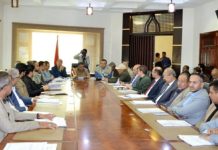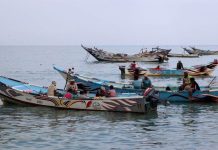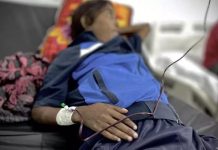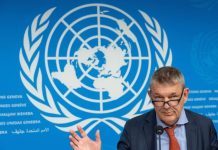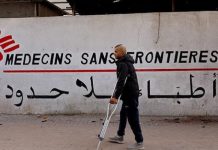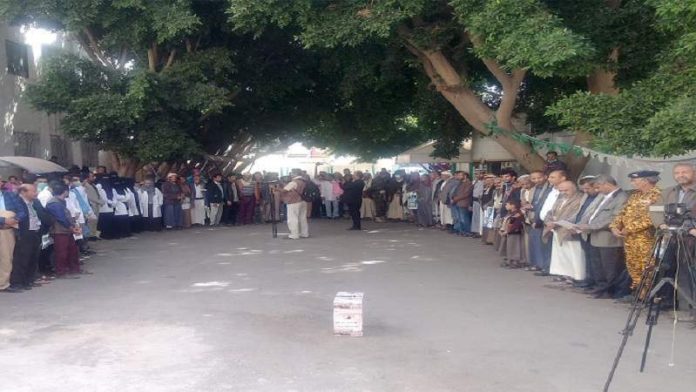The National Center of Oncology and the Cancer Control Fund held an event exposing how the US-Saudi-Emirati aggression is responsible for the catastrophic repercussions on the health sector services, especially those provided to cancer patients, due to the lack of fuel.
The staff of the Center, in a protest, on Wednesday, to denounce the closure of ports and airports, condemned the shameful international silence regarding the continuation of piracy on fuel and medicine ships, which led to the doubling of the suffering of hospital inmates and their inability to continue their services, as well as the lack of medicines for cancer patients.
A statement issued by the stand confirmed that the United Nations and humanitarian organizations bear the responsibility of the aggression coalition’s persistence in preventing the entry of ships to the port of Hodeidah, and ignoring the appeals and warnings of a humanitarian catastrophe due to the depletion of fuel.
The statement warned of the aggression’s insistence, led by USA, Saudi Arabia and the UAE, to escalate the land, sea and air blockade, and its negative effects on services provided to cancer patients, and the aggravation of the catastrophic situation of thousands of patients.
The statement pointed out that the aggression and siege led to catastrophic damage to cancer patients and a decline in the recovery process, attributing the increase in the number of cancer patients by %50 to the aggression’s use of internationally prohibited weapons. It explained that cancer patients are increasing equally, and their suffering is multiplied, because the coalition of aggression prevents the introduction of devices and medicines necessary for their treatment, including the radiotherapy device.
The statement stated that the siege led to the cessation of radioactive iodine treatment at the Nuclear Medicine Center at Al-Thawra General Hospital Authority, because of its importance in the treatment of thyroid cancer. The statement called on the United Nations to carry out its humanitarian duty to prevent arbitrary practices against the Yemeni people, open the port of Hodeidah and Sana’a International Airport, and intervene to stop the aggression, lift the siege, allow the entry of fuel tankers, and end the suffering of Yemenis, especially cancer patients.
The fuel crisis compounded the situation and led to an almost complete paralysis of the health sector, threatening to close many of them, especially the private sector hospitals. Private hospitals in the capital, Sana’a, confirmed that the closure had become a serious issue, due to the lack of fuel.
The Ministry of Health in Sana’a has informed the international and UN organizations of the seriousness of the situation and the need for action to bring in fuel ships, and so far there is no positive sign.




